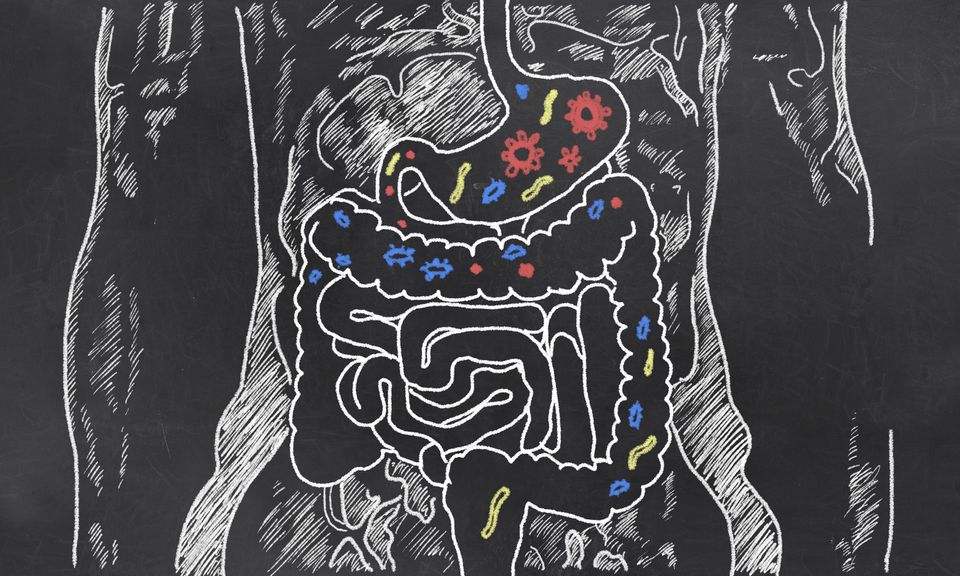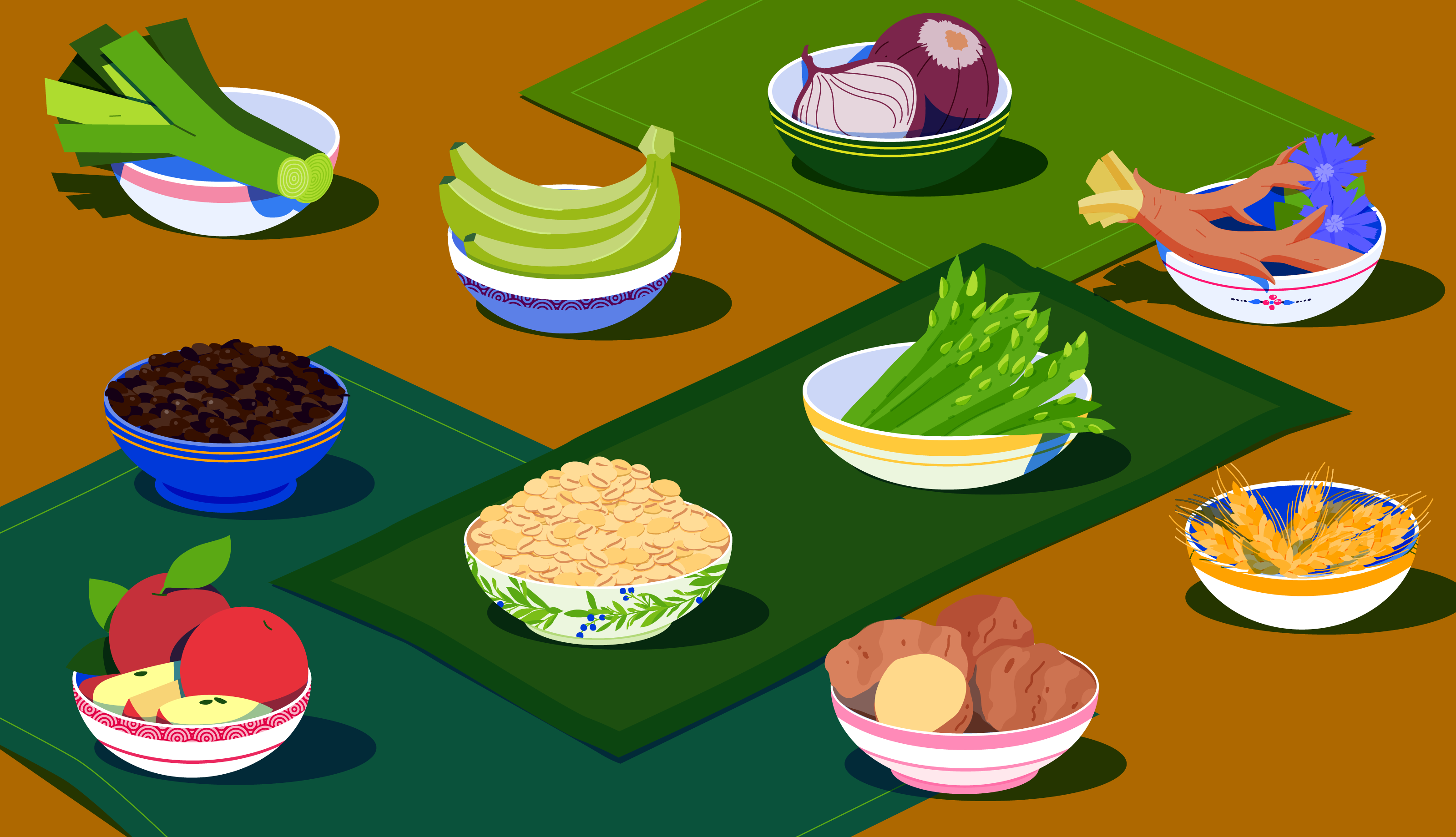How to Improve Your Gut Health and Microbiome

"Sorry, I can't make it tonight, I've got... plans." If you've ever had to use this excuse due to gut health issues, you're not alone.
Whether it's because "I need to stay near a restroom," "I can't fit into my jeans right now," or the ever-dreaded "I might just clear the room with my gas," many of us have been there.
Digestive symptoms like bloating, gas, indigestion, and other bathroom-related concerns are not only common but can also put a damper on your social life.
But here's the good news: there are scientifically-backed strategies to enhance your gut health and digestion. Ready to dive deep into the world of gut health? Let's get started!
Understanding the Microbiome
Imagine your body as a bustling city, and the residents? Microorganisms. Your microbiome, a community of bacteria, fungi, and their genetic material, is spread throughout your body, from your skin and mouth to your lungs and gut. In fact, your gut alone is home to an estimated 10–100 trillion of these tiny inhabitants.
Think of it this way: you're basically a walking, talking bacterial metropolis, and your microbiome is as unique as your thumbprint.
The Role of Gut Bacteria
Gut bacteria, often referred to as the microbiome, play a pivotal role in maintaining our health. These microscopic organisms, residing primarily in our intestines, perform a myriad of functions that often go unnoticed. Let's delve deeper into their roles and understand their significance through tangible examples:
Producing Essential Nutrients:
- Vitamins B and K: Certain strains of gut bacteria are proficient manufacturers of B vitamins, including B12, biotin, and folate. For instance, the bacteria Bacteroides and Bifidobacterium are known to produce B vitamins. These vitamins play a crucial role in energy metabolism, nerve function, and the formation of red blood cells.
- Example: A deficiency in Vitamin B12 can lead to fatigue, anemia, and nerve damage. Thanks to our gut bacteria, we can naturally produce some of these vitamins, reducing our reliance on external sources.
Fermentation of Fibers:
- Short-Chain Fatty Acids (SCFAs): When we consume dietary fibers from foods like beans, lentils, and whole grains, our body doesn't digest them. Instead, these fibers reach the colon where gut bacteria ferment them, producing SCFAs such as acetate, propionate, and butyrate.
- Example: Butyrate, in particular, serves as a primary energy source for our colon cells and has anti-inflammatory properties. It plays a role in maintaining the health of our intestinal lining, preventing conditions like leaky gut.
Regulating the Immune System:
- Gut bacteria interact with immune cells to ensure a balanced immune response. They help in the development of immune cells like T cells and can influence how these cells react to infections and other external threats.
- Example: When a pathogenic bacteria enters our system, certain gut bacteria can enhance the ability of our immune cells to recognize and combat these invaders, preventing illnesses.
Influencing Appetite:
- Gut bacteria can produce compounds that interact with our brain and influence our appetite. For instance, they can affect the release of hunger-regulating hormones like ghrelin and leptin.
- Example: After a meal, certain gut bacteria might produce compounds that promote the release of satiety hormones, signaling to our brain that we're full and should stop eating.
Modulating Stress Responses:
- The gut-brain axis is a two-way communication channel between our digestive system and our brain. Gut bacteria can produce neurotransmitters and other compounds that can influence our mood and stress levels.
- Example: Some strains of Lactobacillus and Bifidobacterium can produce the neurotransmitter serotonin, often termed the "feel-good" hormone. An imbalance in serotonin levels is linked to mood disorders like depression.
In essence, our gut bacteria are the silent workers, diligently performing tasks that are fundamental to our well-being. They might not always be in the limelight, but without them, the grand show of our health could face numerous disruptions. It's high time we give these unsung heroes the recognition they deserve!
Strategies to Boost Gut Health

Now that we've established the importance of these microscopic marvels, let's delve into five actionable strategies to keep them happy and thriving:
- Chew Your Food: Remember when your mom told you to chew your food? She was onto something. Properly breaking down your food not only aids digestion but also ensures that digestive enzymes work their magic efficiently. So, next time you eat, savor each bite and aim for an applesauce-like consistency before swallowing.
- Plant-Based Diet: A diet rich in fruits, vegetables, whole grains, and beans is like a buffet for your gut bacteria. These foods not only nourish your body but also promote bacterial diversity. Plus, they're packed with phytochemicals that have antioxidant and anti-inflammatory properties.
- Fermented Foods: While fermented foods like kombucha and sauerkraut are all the rage, their actual benefits for gut health are still under research. However, kefir, a fermented dairy product, has shown some promising results. The bottom line? Enjoy fermented foods, but don't put all your gut health eggs in one basket.
- Fiber: Fiber is the unsung hero of gut health. But, like all heroes, it's about balance. If your diet is already rich in whole foods, you might not need extra fiber. But if you're falling short, consider adding more fiber-rich foods or even a supplement.
- Probiotics and Exercise: Antibiotics, while sometimes necessary, can be like a tornado for your gut bacteria. To help restore balance, consider probiotic supplements. And don't forget the benefits of regular exercise—it's not just for your muscles but also for your microbes.
Additional Tips for a Happy Gut:
- Manage Stress: Chronic stress can wreak havoc on your gut. Activities like meditation, yoga, and even hobbies can help keep stress at bay and your gut in balance.
- Stay Hydrated: Drinking water is essential for softening stool and promoting regular bowel movements. Aim for at least 8 glasses a day.
- Limit Antibiotics and Certain Medications: While sometimes necessary, these can disrupt your gut's natural balance. Always consult with a healthcare professional before making any changes.
- Seek Professional Help: If you've tried everything and still face issues, it might be time to consult a specialist. After all, everyone's gut journey is unique.
Improving gut health isn't about quick fixes but consistent efforts. By incorporating the strategies mentioned above and being patient, you can pave the way for better digestion and overall well-being. Remember, it's the small changes that make a big difference over time. So, here's to a healthier, happier gut—and fewer canceled plans! Cheers!